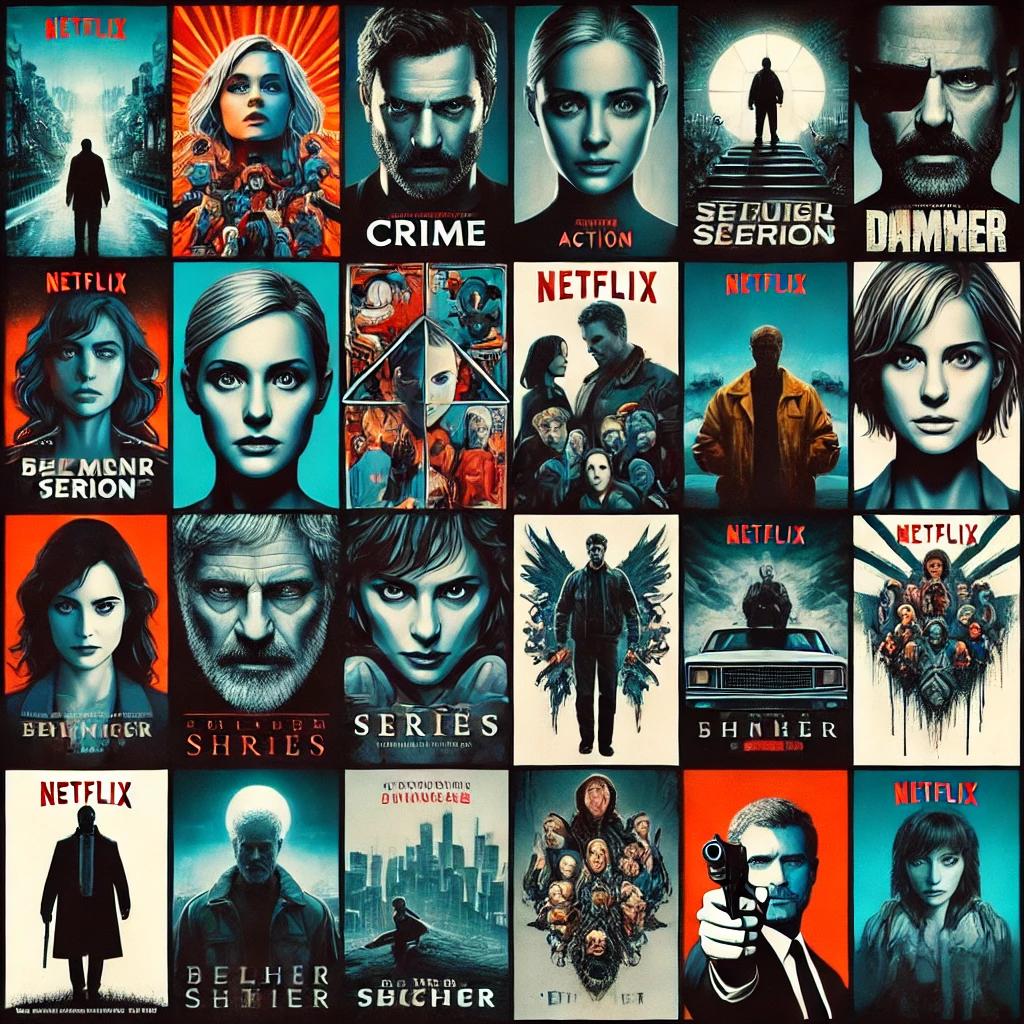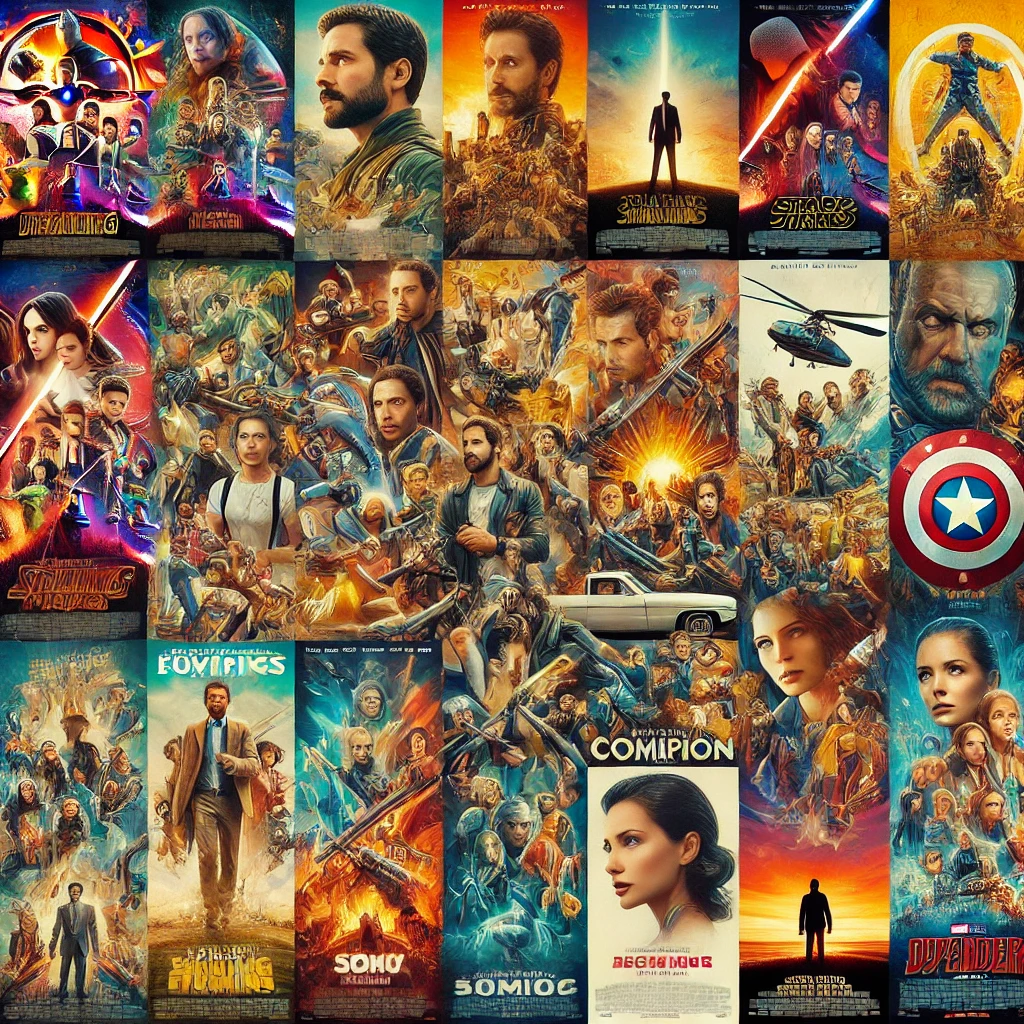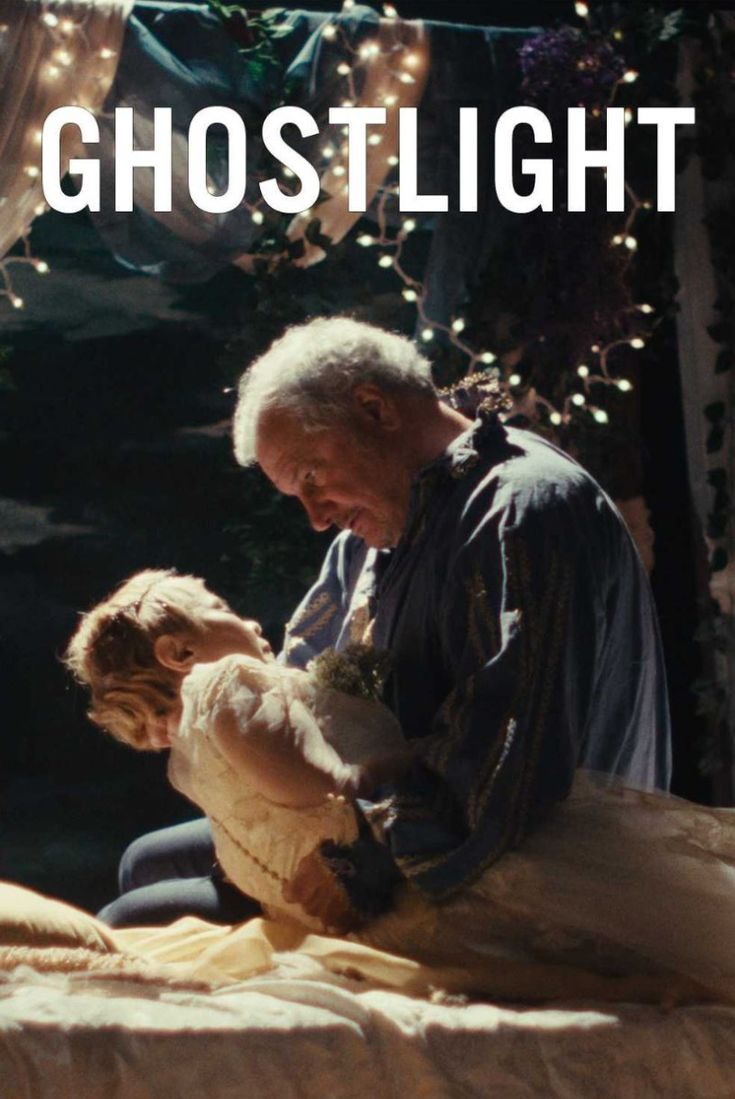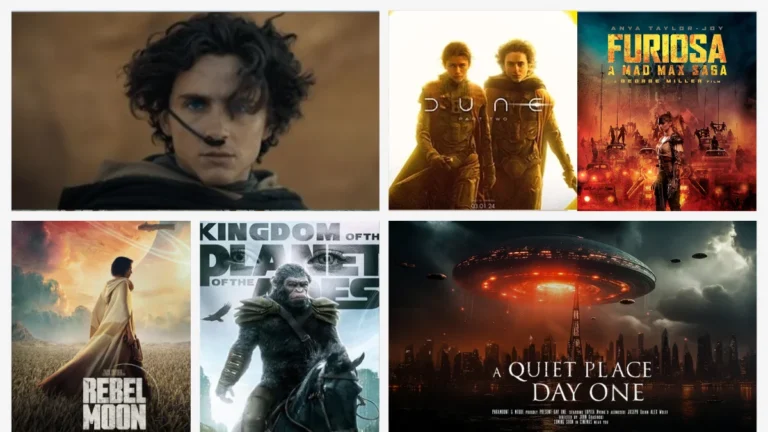“The Godfather: A Legendary Epic of Power, Loyalty, and Family Legacy”
The Godfather (1972)
- Genre: Crime/Drama
- Director: Francis Ford Coppola
- Runtime: 2 hours 55 minutes
- Awards: Won 3 Academy Awards, including Best Picture, Best Actor (Marlon Brando), and Best Adapted Screenplay. Nominated for 8 others.
Plot Overview
The Godfather is a gripping, multi-generational saga centered on the powerful Corleone crime family, one of the five mafia families in New York. The patriarch, Don Vito Corleone (Marlon Brando), is a revered and feared figure in the mafia world, known for his loyalty, honor, and strategic mind. However, as he ages, he must choose a successor to inherit the family business, triggering a struggle within his family.
The youngest son, Michael Corleone (Al Pacino), initially distances himself from the family’s criminal activities, having served honorably in World War II and looking forward to a legitimate future. But when an attempt is made on Don Vito’s life, Michael is drawn into the dark, violent world of mafia politics. As the story unfolds, Michael transitions from an outsider to the family’s new, ruthless leader, replacing his father and embarking on a brutal campaign of revenge and consolidation of power.
The film delves into themes of family, power, loyalty, morality, and the American Dream, showcasing how power can corrupt and destroy those who seek it.
see more

Key Themes and Symbolism
- Family and Loyalty: The Corleones are a family where blood ties and loyalty come before anything. Family members are expected to be loyal not only in personal matters but also in the business. Michael’s transformation from the family’s most morally distant member to its head symbolizes the all-consuming nature of power and loyalty in the mafia world.
- The American Dream: The Godfather portrays a darker version of the American Dream. The Corleones, as immigrants, seek wealth and influence in America, but they achieve this through organized crime. The film questions the cost of success and how far one is willing to go to secure power and legacy.
- Power and Corruption: The Godfather portrays how the pursuit of power can warp individuals and lead them down dark, irreversible paths. Michael’s moral descent shows that in a world of violence, power is maintained through brutality, and even those with the best intentions can be consumed by corruption.
- Tradition vs. Modernity: Vito Corleone represents the old-world values of honor and respect, while his sons, particularly Michael, symbolize the shift towards a more ruthless, business-like approach to crime. The film illustrates the clash between tradition and modernity as the family’s business evolves.
Iconic Scenes
- Opening Scene – The Wedding: The movie begins with a lavish wedding for Vito Corleone’s daughter, Connie. During the celebrations, people visit Don Vito to ask for favors, highlighting his power and influence. “I believe in America” is the opening line, setting the tone for the film’s exploration of the American Dream.
- The Hospital Scene: After Vito is hospitalized following an assassination attempt, Michael takes steps to protect his father. The scene where Michael holds his ground outside the hospital, knowing that enemies are coming, marks his first step into the criminal world.
- The Restaurant Scene: One of the most memorable scenes is when Michael kills a rival mobster and a corrupt police officer in a restaurant, cementing his commitment to the family business. His cold, calculated execution shows how much he’s changed.
- Baptism of Fire: The climax of the film is an iconic montage where Michael attends the baptism of his nephew while simultaneously orchestrating the murder of all his enemies. This juxtaposition of religious purity and brutal violence encapsulates Michael’s transformation into the ruthless new Don.
Notable Performances
- Marlon Brando as Vito Corleone: Brando’s performance is legendary, as he delivers a portrayal of Don Corleone with gravitas, wisdom, and vulnerability. His deep voice and mannerisms, like the iconic cheek-puffing (achieved with cotton balls), make his character one of the most unforgettable in film history.
- Al Pacino as Michael Corleone: Pacino’s portrayal of Michael is a masterclass in subtlety and transformation. Over the course of the film, Michael evolves from a quiet, idealistic outsider to a cold, calculating mob boss. His performance was pivotal to the film’s success, and it catapulted him to stardom.
- James Caan as Sonny Corleone: Caan brings energy and explosiveness to the role of Sonny, the eldest Corleone son, known for his impulsiveness and violent temper. His tragic death in a tollbooth ambush is one of the film’s most shocking moments.
- Robert Duvall as Tom Hagen: Duvall plays the calm and rational family consigliere, Tom Hagen, who serves as the legal and strategic advisor to the Corleone family. His performance adds a level of groundedness amidst the family’s escalating violence.
Cultural Impact
The Godfather is widely regarded as one of the greatest films ever made, influencing countless movies and TV shows that followed. It set a new standard for storytelling in cinema, particularly in the crime and mafia genres. The film’s quotes, including “I’m gonna make him an offer he can’t refuse” and “Leave the gun, take the cannoli,” have become ingrained in pop culture.
Beyond its influence on the film industry, The Godfather has also been praised for its exploration of Italian-American identity and the immigrant experience. The film’s portrayal of the mafia world is both glamorous and tragic, offering a nuanced look at crime and morality.
Legacy
The success of The Godfather led to two sequels, with The Godfather Part II (1974) often considered one of the few sequels that matches—or even surpasses—the original in quality. The trilogy as a whole has left an indelible mark on film history, and its influence is still felt in modern cinema.
Even today, the themes of power, family, and corruption in The Godfather resonate with audiences, and the film continues to be studied, analyzed, and appreciated for its unparalleled contribution to filmmaking.
Why You Should Watch It
- Masterful Direction: Coppola’s direction is meticulous, with every scene crafted to perfection. His ability to blend drama with tension and emotion creates an immersive experience for viewers.
- Unforgettable Performances: The performances from Brando, Pacino, and the rest of the cast are some of the finest in cinema history.
- Complex Characters: The Godfather offers a deep exploration of its characters, particularly Michael Corleone, whose transformation is one of the greatest character arcs in film.
- Cultural Significance: Beyond being a cinematic masterpiece, The Godfather remains relevant for its themes and impact on American culture and filmmaking.
In short, The Godfather is not just a movie; it’s a cultural milestone that continues to captivate and influence viewers and filmmakers alike. If you haven’t seen it, this classic is a must-watch for its storytelling, performances, and timeless relevance.




